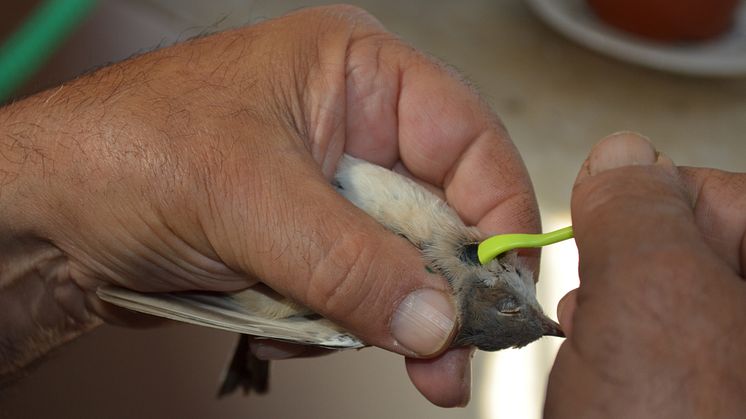Shamus Khan awarded the 2018 Hans L. Zetterberg Prize
Professor Shamus Khan at Columbia University is the second recipient of the Hans L. Zetterberg Prize in Sociology. The prize sum is SEK 100,000.
Professor Shamus Khan at Columbia University is the second recipient of the Hans L. Zetterberg Prize in Sociology. The prize sum is SEK 100,000.
The challenges of future cancer care are in focus when Uppsala Health Summit 2018 opens next week. The annual summit will be attended by important international actors from health organisations, academia, industry, civil society and policy organisations.
Uppsala University, Uppsala University Hospital and the European Infrastructure for Translational Medicine (EATRIS) have formed a collaboration with GlaxoSmithKline (GSK) to deliver a clinical and scientific expert network for the development and application of innovative imaging methods for inflammatory diseases.
In a new study, researchers at Uppsala University and other institutions have identified genetic material from the recently identified Alkhurma hemorrhagic fever virus in the tick species Hyalomma rufipes. The discovery was made after thousands of ticks were collected from migratory birds . The results indicate that birds could contribute to spreading the virus to new geographical areas.

A key question in evolutionary biology is how new functions arise. New research at Uppsala University shows that bacteriophages (viruses that infect bacteria) can contribute to new functions by revealing hidden potential in their bacterial hosts.
The number of people who fall ill with cancer is increasing globally. While medical advances open up unprecedented opportunities for slowing down and treating cancer, the gap between what is medically possible and what healthcare can provide is constantly growing. Ahead of Uppsala Health Summit, 14–15 June, the report Care for Cancer was published today, focusing on future diagnostics and care.
Cellular lipids are more efficient than proteins in trapping most drugs and hence reducing the free intracellular drug concentration. This is shown by researchers at Uppsala University in an article published in Molecular Pharmaceutic.
One strategy for cancer therapy is to inhibit the development of blood vessels in the tumour. Researchers at Uppsala University show in a new study how the protein CD93 interacts with the protein network that is required for tumour vessels to form properly. Blocking this interaction could be used as a means to hamper blood vessel development and slow down the cancer.
A new study published in Nature Communications shows that infants who are later diagnosed with autism react more strongly to sudden changes in light. This finding provides support for the view that sensory processing plays an important role in the development of the disorder.
In a new study published by Nature, an international team of researchers led by Uppsala University in Sweden proposes a new evolutionary origin for mitochondria – also known as the ‘powerhouses of the cell’. Mitochondria are energy-converting organelles that have played key roles in the emergence of complex cellular life on Earth.
Antibiotic-resistant bacteria are a global and growing problem in health care. To be able to prevent further development of resistance developing, it is important to understand where and how antibiotic resistance in bacteria arises. New research from Uppsala University shows that low concentrations of antibiotics, too, can cause high antibiotic resistance to develop in bacteria.
A handful of tiny teeth have led scientists to identify the most distant ancestor of today’s kangaroos. The fossils were found in the desert heart of Australia, and then hidden away, and almost forgotten in a museum collection for over three decades. The findings are published in the Journal of Vertebrate Paleontology.